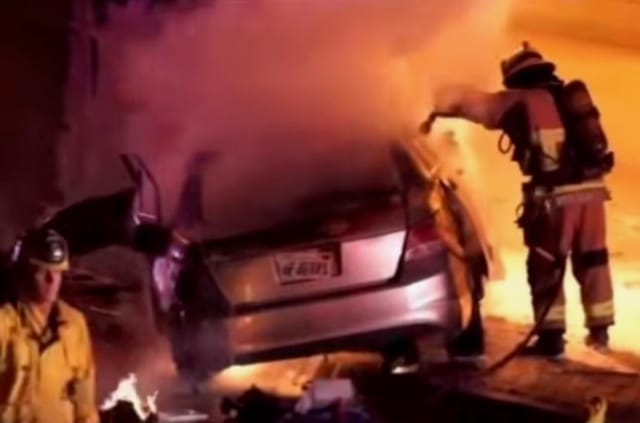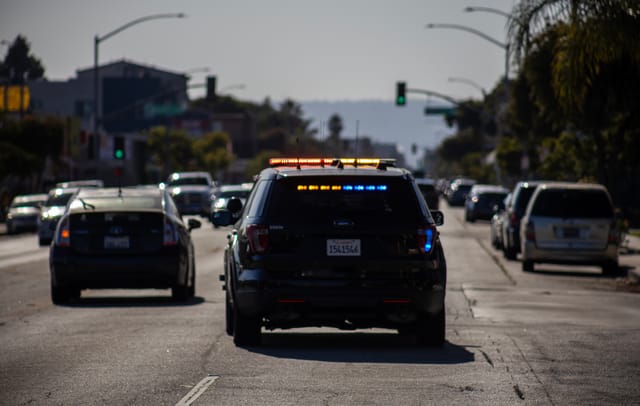Long Beach now enforcing its longstanding ban on public camping — starting with parks
With most emergency and temporary shelters in the city close to capacity, it's unclear where unhoused people will go.
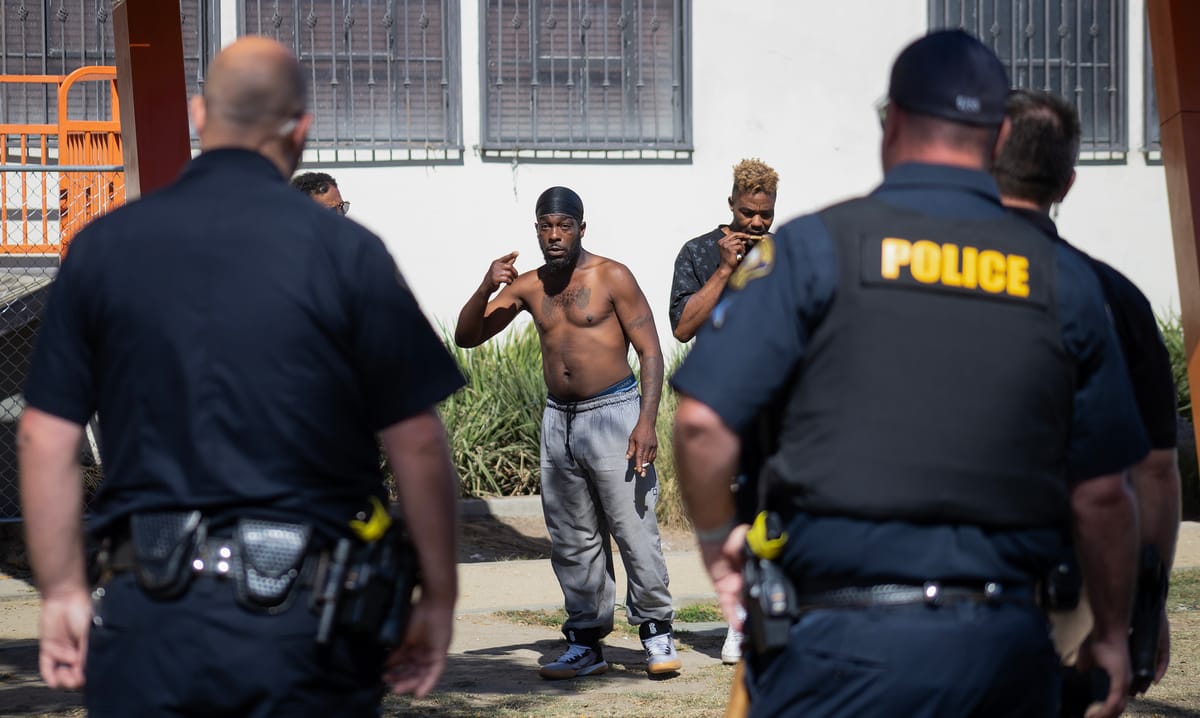
Long Beach began enforcement of its decades-old ban on public camping, targeting several parks and public spaces around the city for cleanups, but with most emergency or temporary shelters close to capacity it’s unclear where people ousted from parks will go.
On Monday at Gumbiner Park, after sending outreach workers there regularly for several months, the city cleared an encampment and fenced in most of the property, according to information provided by city spokesperson Kevin Lee. The fence will allow workers to repair damage and refurbish the park, Lee said.
Deputy City Manager Teresa Chandler laid out the city’s enforcement strategy in a public memo last week, explaining that the city will focus on encampments “that pose significant and persistent obstruction to use of public resources like parks, libraries and beaches.”
A key change from Long Beach’s prior strategy is the threat of citations or arrests by police when people refuse to leave their camp or resume camping in areas that have already been cleared.
While the city's prohibition of camping on public property has been in place since the early 1990s, the number of unhoused people in Long Beach has increased significantly in recent years (the January 2024 homeless count found 3,376 unhoused people in the city, 2,400 of whom were unsheltered).
Since a 2018 court decision that governed the western U.S., cities had to at least offer shelter before they could enforce camping bans, but in late June the U.S. Supreme Court overturned that ruling, allowing cities to cite and arrest violators without offering housing.
As cities reacted to the Supreme Court decision, California Gov. Gavin Newsom first ordered state agencies to clear encampments from state-owned properties, and then threatened to withhold funding from cities and counties if they didn't follow suit.
In her memo, Chandler emphasized the “human-centered approach” Long Beach would take, including repeated attempts to offer services and shelter, and provision of immediate aid such as food or water.
But the memo also acknowledged that giving out citations with fines that unhoused people likely can’t pay could impede their attempts to get back on their feet, and that “there is almost always greater interest in shelter than available shelter capacity on any given evening.”
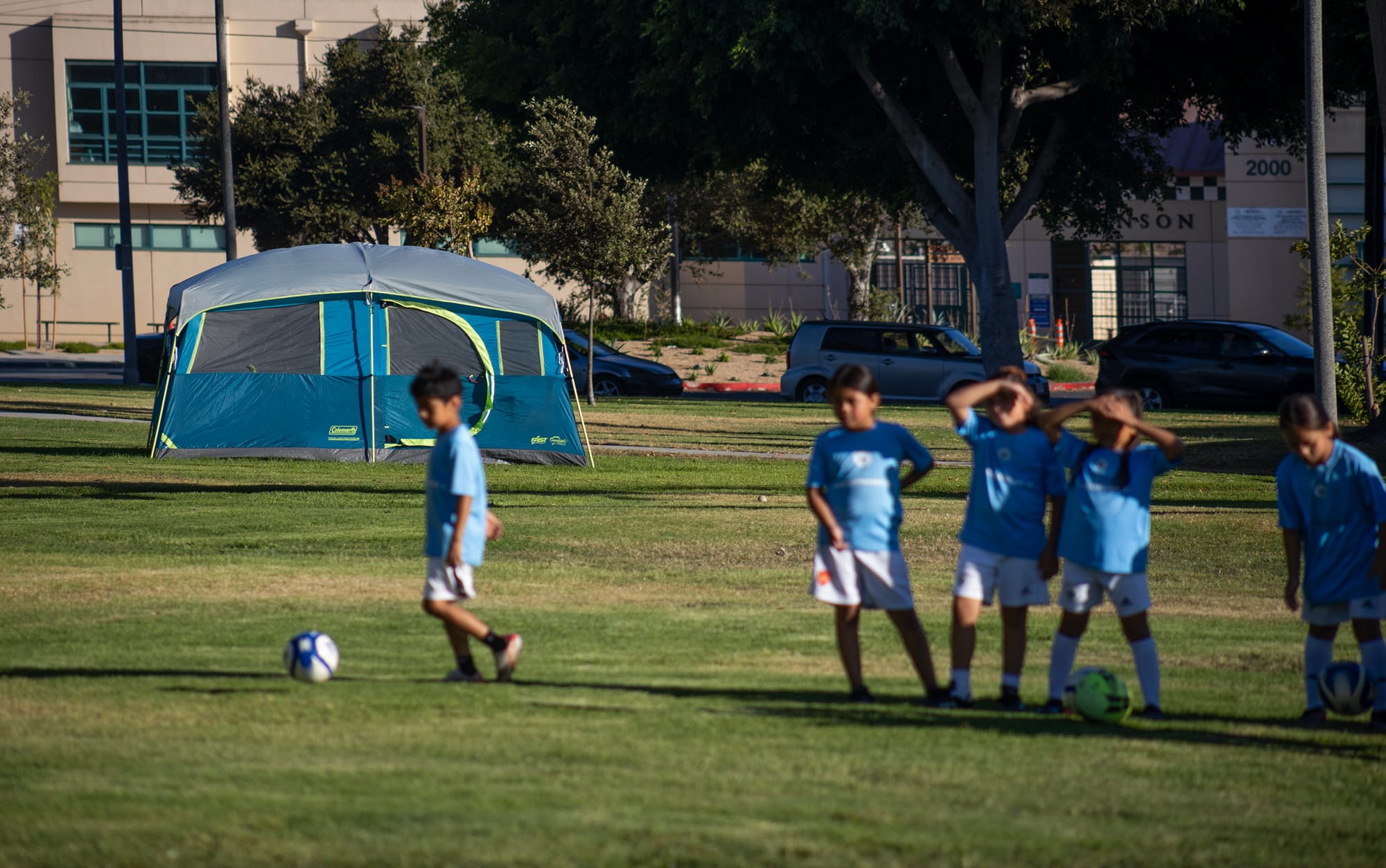
This, to Anthony Smith, is the crux of the problem. Smith’s tent was one of about a dozen set up under shade trees and on the grass Monday morning at Veterans Park. Yards away, kids were taking part in a summer program in the park’s community center.
The city said it will target Veterans Park for cleanup, along with Gumbiner, Jenni Rivera Memorial Park, and Billie Jean King Library and Lincoln Park.
“How are they going to start ticketing people if they haven’t got enough housing to put people in?” Smith said while sitting in the shade next to his sleeping dog.
“If I had somewhere to go, I would be there.”
Smith said he became homeless when he lost his job working with people on community supervision after criminal convictions. He’s been at Veterans Park for about two months, and the city already sweeps the encampment there at least once a week, he said.
Smith said while living in a tent, he’s already gotten three tickets for “loitering.” He questioned what it would cost the city, up to and including putting people in jail, to try to collect the fines on camping citations.
Paige Pelonis, whose nonprofit CityHeART works with unhoused people, said she was surprised and disappointed by the emphasis Chandler’s memo seemed to put on citations and arrests.
She’s heard about inadequate staffing, unpleasant living conditions and safety concerns at some shelters, which leads some to choose camping.
“We don’t have an adequate alternative to sleeping outdoors,” Pelonis said, so adding more encampment sweeps “just seems like we’re shuffling the problem around.”
But others say the city’s plan for tougher enforcement is a needed corrective that will bring accountability to Long Beach’s compassionate approach.
“I don’t know how as a society we got okay with somebody smoking meth at 2 in the afternoon outside a middle school,” said Jeff Levine, who runs the Long Beach Rescue Mission. His organization operates 215 shelter beds at several facilities (they’re usually full) and expects to open another 72 beds in the next few years.
Levine said he thinks the city created “a reasonable set of criteria” for which encampments it will focus on, and that enforcement is an appropriate part of a complex response to a complex problem.
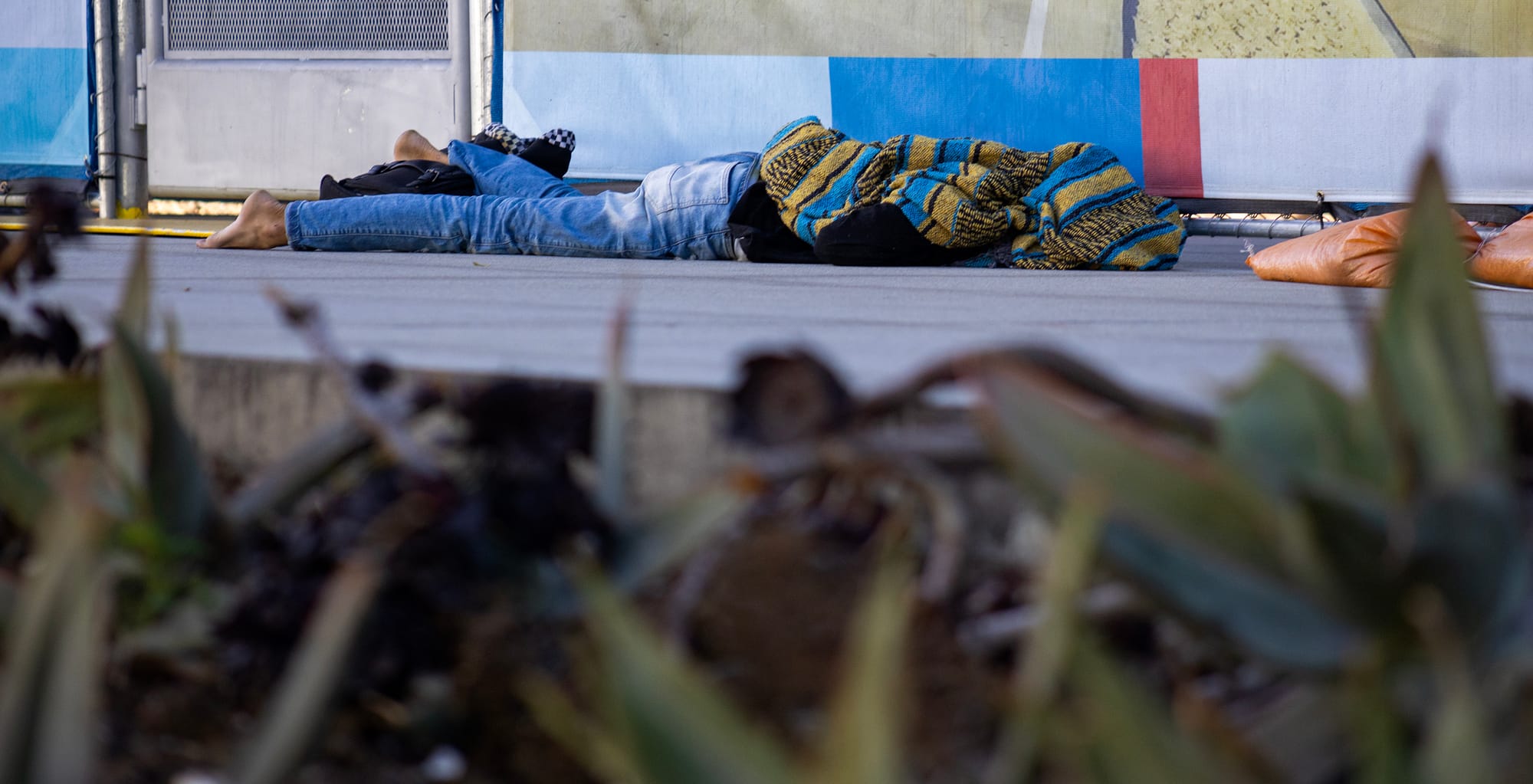
“We’re not going to arrest our way out of it, but I think there does need to be a sense in the community that if you’re not going to accept resources, … we’re going to say that’s not going to work for us in the city,” Levine said.
Pelonis said she has asked the city to notify her when it starts outreach or posts notices that an encampment is about to be cleared, so that her organization can be there to offer help.
Besides adding the tool of citations to their multi-departmental approach to addressing homelessness, Long Beach officials recently announced a new office under the city manager that will work on expanding homeless services, improving the system and collaborating with outside agencies and organizations.
The Office of Homeless Strategy and Partnerships will oversee an update of the city’s five-year plan to address homelessness, but no date has been set for a planned public open house on the issue.
Officials also didn’t provide a timeline for when specific parks will see increased outreach and encampment cleanups, but city spokesperson Kevin Lee’s email said Gumbiner Park will likely remain fenced through October while workers make repairs and renovations.
*Editor's note: This story was updated with additional context surrounding the city's decision to fence in Gumbiner Park.

We need your support.
Subcribe to the Watchdog today.
The Long Beach Watchdog is owned by journalists, and paid for by readers like you. If independent, local reporting like the story you just read is important to you, support our work by becoming a subscriber.


